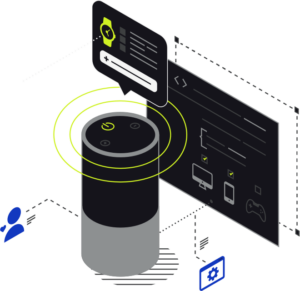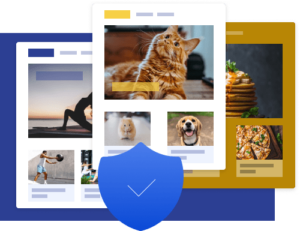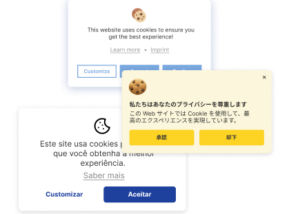Compliance Solutions for Diverse Store Types
Pandectes GDPR Compliance offers tailored solutions for various types of stores, including Shopify, Shopify Plus, headless stores, multilingual stores, and multistore companies. Our comprehensive tools ensure compliance with privacy regulations, empowering businesses to manage cookies, tracking technologies, and data privacy seamlessly across all store types.
Shopify

What is the Shopify?
Shopify is a cloud-based e-commerce platform that enables individuals and businesses to create and manage their own online stores. It offers a comprehensive suite of tools and services to help merchants sell products and services online, in physical retail locations, and across various sales channels like social media and marketplaces.
Who Uses Shopify?
- Small business owners creating their first online store.
- Established brands expanding their e-commerce presence.
- Enterprises needing scalable solutions (via Shopify Plus).
What are the key features of Shopify?
- Online Store Creation: Build customizable, mobile-responsive online stores with pre-designed themes and an easy-to-use interface.
- Sales Channels: Sell through multiple channels, including websites, social media (e.g., Instagram, Facebook), and marketplaces (e.g., Amazon, eBay).
- Secure Payment Processing: Accept various payment methods with built-in payment gateways like Shopify Payments or third-party options.
- Inventory Management: Manage inventory, track stock levels, and organize products efficiently.
- Scalability: Supports small businesses, growing brands, and large enterprises through Shopify’s tiers like Shopify Plus (for high-volume businesses).
- Marketing and SEO Tools: Built-in tools for SEO, email marketing, discounts, and analytics to drive traffic and increase conversions.
- Third-Party Integrations: Integrates with apps and services for shipping, accounting, customer support, and more.
Shopify Plus

What is the Shopify Plus?
Shopify Plus is Shopify’s enterprise-level e-commerce platform designed for high-volume businesses, large brands, and fast-growing merchants. It offers advanced features, enhanced support, and greater flexibility compared to the standard Shopify plans, catering to the needs of businesses that require scalability and customization.
Who Uses Shopify Plus?
- Established brands like Allbirds, Gymshark, Heinz, and Kylie Cosmetics.
- Businesses requiring custom e-commerce experiences.
- Companies needing robust tools for international sales, wholesale operations, or headless commerce setups.
Why Choose Shopify Plus?
Shopify Plus is ideal for businesses looking for advanced tools, scalability, and personalized support while still benefiting from Shopify’s ease of use and reliability. It’s a solution for brands that want to grow globally and manage complex operations seamlessly.
What are the key features of Shopify Plus?
- Scalability: Built to handle high-traffic stores and large order volumes without compromising performance.
- Customization: Full control over your store’s design and functionality with access to Shopify’s APIs and customizable checkout.
- Dedicated Support: Access to a dedicated account manager (called a Merchant Success Manager) and priority customer support.
- Advanced Automation: Use Shopify Flow, an automation tool to streamline repetitive tasks like inventory management, order tagging, or customer segmentation.
- Multi-Store Management: Manage multiple stores from a single Shopify Plus account, ideal for brands operating in multiple regions or with distinct product lines.
- Custom Checkout: Enhanced checkout options with greater flexibility, including multi-currency and tailored experiences for different customer groups.
- High Performance: Optimized infrastructure to ensure speed and uptime, even during traffic spikes like Black Friday or seasonal sales.
- Wholesale Channel: Built-in tools to create a wholesale storefront for B2B customers.
- Lower Transaction Fees: Reduced transaction fees compared to regular Shopify plans.
Headless Stores

What are the Headless Stores?
Headless stores on Shopify refer to a headless commerce setup, where the front-end (the “head”) of the website is decoupled from the back-end Shopify platform. This allows businesses to use Shopify for managing e-commerce operations (like products, inventory, orders, and payments) while having complete flexibility to build a custom front-end using any technology they prefer, such as React, Angular, or Vue.js.
- Shopify continues to handle the e-commerce back-end (e.g., product catalog, checkout, payments, and order management).
- The front-end is built using a separate framework or content management system (CMS), which communicates with Shopify via APIs like the Shopify Storefront API or GraphQL.
What are the key benefits of Headless Stores?
- Custom Front-End Design: Build unique, highly customizable user experiences without being limited by Shopify’s default theme architecture.
- Improved Performance: Use modern technologies like React or Next.js to create faster and more responsive front-ends.
- Omnichannel Experiences: Deliver consistent experiences across multiple touchpoints (e.g., websites, apps, kiosks, and IoT devices).
- Flexible Integrations: Easily integrate with other tools, platforms, or content management systems like WordPress or Contentful.
- Scalability: Handle high traffic and complex storefront requirements by leveraging server-side rendering (SSR) or static site generation (SSG) with frameworks like Gatsby or Next.js.
- Multi-Platform Content: Repurpose content and product data across different platforms or devices without restrictions.
Multistore Companies

What are the Multistore Companies?
Multistore Companies are businesses that operate multiple online stores under one organization. These stores are often tailored to serve different markets, regions, customer segments, or product lines. Shopify provides tools and solutions to manage these stores efficiently, especially for larger companies.
When to Consider a Multistore Setup
- You’re expanding into international markets.
- You have multiple brands or distinct product lines.
- You serve both B2B and B2C audiences.
- You need to comply with region-specific laws like GDPR or CCPA.
Why Multistore Setups are Used?
Companies choose multistore setups for:
- Geographic Targeting: Separate stores for different countries or regions, each optimized for local languages, currencies, and regulations.
- Customer Segmentation: Dedicated stores for B2B (business-to-business) and B2C (business-to-consumer) customers, with unique pricing or features.
- Brand Differentiation: Managing multiple brands or product lines under the same company but with distinct store experiences.
- Customization: Tailored designs, features, or catalogs for different target audiences.
Multilingual Stores

What are Multilingual Stores
Multilingual stores are e-commerce websites that offer their content in multiple languages, allowing businesses to cater to diverse customer bases across different regions and cultures. In the context of Shopify, multilingual stores enable merchants to display product descriptions, navigation menus, checkout processes, and other content in the customer’s preferred language.
Why Create a Multilingual Store?
- Expand Global Reach: Attract and engage customers from different countries and regions.
- Improve Customer Experience: Provide a localized shopping experience in customers’ native languages.
- Increase Conversion Rates: Customers are more likely to purchase when they understand the content clearly.
- Meet Legal Requirements: Some regions require websites to display content in the local language (e.g., Quebec’s French-language laws).